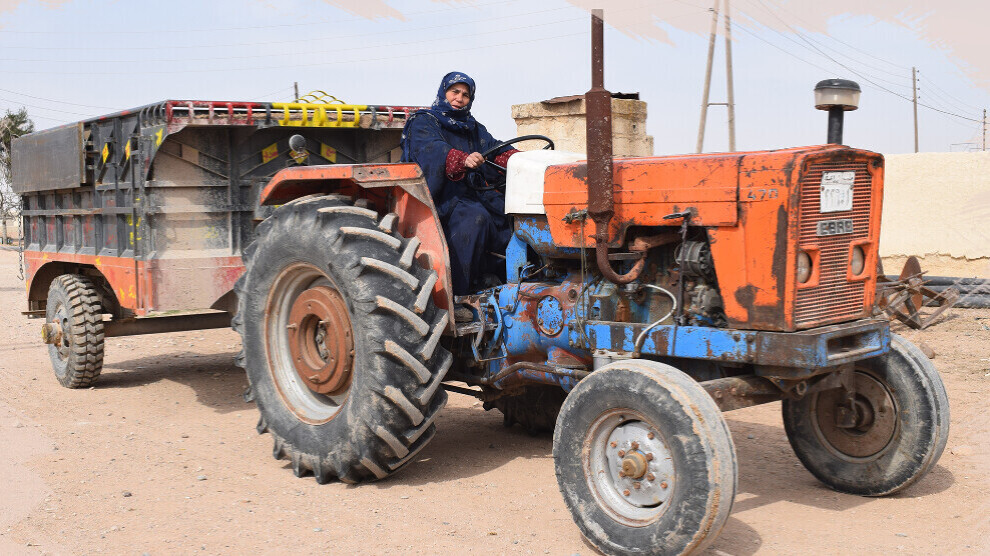Women in Eyn El-Camûs village play important role in all spheres of life
Women living in the Eyn El-Camûs village play important role in all spheres of life, including in public administration and agriculture. In the village where communal life is practiced, men and women have an equal life.

SİLVA EL-İBRAHİM
Manbij- Eyn El-Camus village, 40 kilometers northeast of Manbij, is located near the Euphrates River. The name of the village has a story. According to the story, one of the elders of the village won first place by competing with one of the neighboring villages with a camûs (Eng: buffalo). For this reason, the name of the village was changed to Eyn El-Camûs. Everyone living in the village is engaged in farming. In the village where communal life is practiced, men and women have an equal life. While walking around the village, we saw women driving tractors, cultivating land, milking, taking care of their animals, and doing many other things. In addition to the work in the village, women have participated in public administration and politics. By participating in decision-making positions, women have a voice in the village.
Women are in all spheres of life
55-year-old Farida El-Nasir told us that she drove tractors for 20 years. “I drove and worked for 20 years until my children grew up and got a job. I also taught my daughters how to drive a tractor and face the difficulties of life. All villagers believe in common life between men and women. Some men work abroad, some women work in the village and take on all responsibilities, not just drive tractors. Women know how to operate all machines we need in our rural life. Rural women have strong personalities and work along with men in all spheres of life,” she told us.
No gender discrimination in the village
55-year-old Fayda Mihemed Şêx learned how to drive a tractor two years ago after her husband died. Stating that she has overcome many difficulties by herself, Fayda Mihemed Şêx said, “Despite my age, I keep driving the tractor because my son is still very young and my daughters go to school. After school, my children help me in farming and operating agricultural machinery. Before the death of my husband, we worked together in the village. The number of women working in villages is always higher. We live in solidarity, without gender discrimination. And unlike some societies, having a daughter is not a problem in our village, because women have the same ability to work in the house and in agriculture as men. Girls in the village work in fields while continuing their education.”
